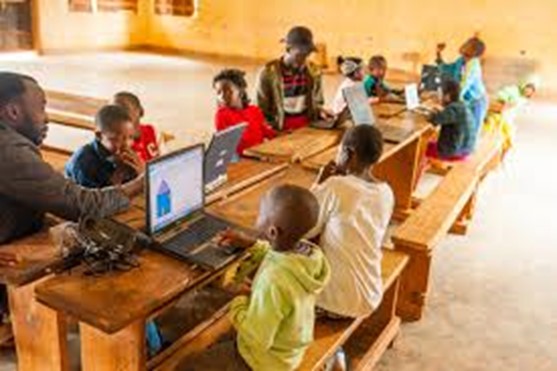The Ghana Education Service (GES), as part of preparations for the piloting of the 21st-century school system, has been urged to ensure the provision of adequate maintenance and security resources for sustainability.
While the GES efforts to deepen digital literacy education at the basic level are commendable, it is important to put in place measures that protect these devices and the infrastructure fostering and evolving around a sustainable maintenance culture.
Executive Director, Africa Education Watch (Eduwatch), Kofi Asare, said: “The GES, as part of preparations for the piloting of the 21st Century Schools, must provide security and maintenance budgets for schools and mainstream the management of Information Communication Technology (ICT) facilities into the key performance indicators (KPIs) of school heads, while ensuring annual ICT audits are undertaken by the District Education Office for the necessary action”, he said.
However, he mentioned that the attainment of the afore-mentioned recommendation requires an increase in the Capitation Grant, and should be anchored on an ICT facility management policy for schools.
The Capitation Grant is the main source of funding for basic schools. Unfortunately, the Capitation Grant used in running basic schools, apart from being in arrears spanning two academic years, has remained at GH₵10 per pupil since 2018, losing over 190 percent of its value to inflation over the period 2018-2024.
Beyond procurement of ICT facilities, there is the need to build systems to operationalise ICT facilities; and this includes adequate and timely disbursement of the Capitation Grant as well as an increase in the allocation to reflect the high inflation rate.
The government introduced ‘Computing’ as a compulsory subject in upper primary and Junior High Schools (JHS) to help learners acquire basic ICT skills.
Notwithstanding, data available at the end of the 2022/2023 academic year indicates that only 13 percent of the 11,735 public JHS and 15 percent of the 15,368 primary schools in the public sector had functioning ICT facilities 20 years of introduction.
To deliver digital literacy to all, regardless of geographical location, requires providing direct access to ICT facilities for about 13,000 primary schools and 10,000 more JHS. This lack of ICT facilities to facilitate effective teaching and learning of Computing in Ghana’s basic education system obturates the policy.
The current Strategic Plan (2018-2030) targets 60 percent of primary schools to have computers and Internet, with 80 percent for JHS by 2030. Similarly, in the medium term, the plan targets to achieve 50 percent coverage for primary schools and 70 percent of JHS with ICT and Internet facilities by 2026.
GES and local governments to collaborate on electricity access to basic schools
In recent times, several schools – both Senior High Schools (SHS) and JHS – have been disconnected by the power providers for indebtedness. Given this, the GES should provide funds through the Capitation Grant for the payment of electricity bills of basic schools.
Furthermore, digital literacy education thrives in the availability of infrastructure and related devices; therefore, in basic schools where electricity is not connected but the schools are in communities with electricity access, local governments should work with the local communities to extend electricity connectivity to the schools.










